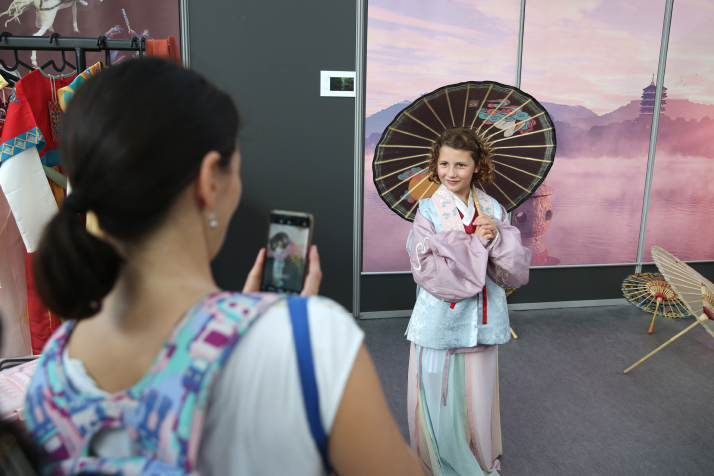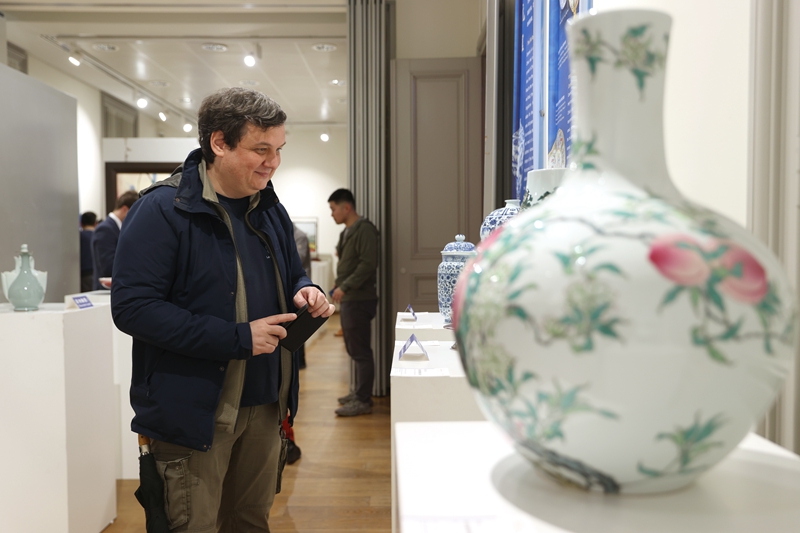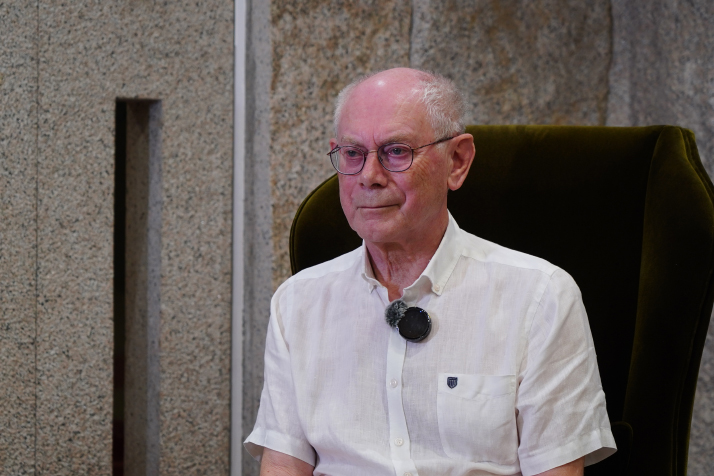There are differences among civilizations, but also a lot of parallels. “And it’s heartening that we are discovering more of these similarities,” said Herman Van Rompuy, former Prime Minister of Belgium and former President of the European Council, in a recent interview with Beijing Review reporter Ma Miaomiao in Guilin, Guangxi Zhuang Autonomous Region. Edited excerpts of his remarks follow:
We always speak about East and West as if we have totally different cultures, which is not the case. What is different is the general approach, but the values are the same—the values of togetherness, charity, compassion and humanness.

Parallels
We are all human beings, and we all want to have a normal life, a stable relationship with our parents and partners. Put it another way: What we want is a good job and good health. That’s very common among all people around the world.
I’ve visited many places, and I’ve always seen the same kind of longing and need. We are all looking for the meaning of life. But the meaning of life lies in what we can do for others. This is another approach of “centeredness”—instead of “self-centeredness.” And that also brings us together.
The ancient Chinese philosopher Confucius (c. 6th century B.C.) once said, “All men within the four seas under Heaven are brothers,” and that’s all exactly the words of the European anthem, Ode to Joy. And the line “all men become brothers under the sway of thy gentle wings” (which stems from 18th-century German dramatist Friedrich Schiller’s poem Ode to Joy, on which the anthem is based), in particular. We are singing exactly what Confucius said—in another tradition.
The Chinese philosophy of pursuing harmony in diversity is valuable not only to China, but also to people in Europe. Harmony does not mean that we are all the same. The most important thing is not to be uniform, but to listen to each other, understand each other, and ultimately find ways to work and live together.
For me, it’s heartening that we are discovering more of these similarities. There are differences among different countries, but also are a lot of parallels. There are divergences, but also a lot of convergences.
Another ancient Chinese and Confucian philosopher, Mencius (c. 4th century B.C.), believed in the innate goodness of people. We are living in a time of growing polarization, enemy-thinking, sometimes extremism. In this present time of growing distrust between people, countries and cultures, this is actually a strong message from him that humankind by nature is good, and we should have confidence in people, because actually, people want to do good for others.
In the European tradition, we have philosophers with the same kind of approach who have had a terrific impact on our civilization.
However, we know that this view on humanity and reality is not always put into practice. This idealistic view is too often contradicted by realities, but I think many people share this feeling with me—that starting from the approach that most people want what’s best for their children, family, and so on, for the country where they live, is a good start and may be an answer to the mistrust of today.

People visit an exhibition themed on Chinese porcelain and ceramics at the China Cultural Center in Brussels, capital of Belgium, on February 22 (XINHUA)
Communication
We have missed a lot of exchange in areas such as tourism and sports due to the COVID-19 pandemic. So it’s high time that we catch up.
Does the simple fact that we see each other in person solve all the problems? No. But it’s a contribution to create another climate among nations belonging to different cultures and civilizations.
I’m convinced that when we see each other in our respective countries, then we look at people and countries differently. We can discover that we are similar in many ways; we share the same values, have the same ambitions and the same fears. We are all human beings, and direct contact, people-to-people contact, contributes greatly to that journey of discovery.
In Europe, we have a program that has allowed university students to study abroad for six months over the past 20 to 30 years.
Through this program, they return home not just Belgian or French, but European.
Nearly 10 million students have participated in this initiative. When I was 16, I had the opportunity to embark on a trip to north Italy and the Netherlands through this program. It was a transformative experience that left a lasting impact on me.
Regarding China, there are many developments already underway. At my alma mater, Belgium’s Catholic University of Leuven, there are thousands of Chinese students. These young Chinese individuals, who possess transformative potential, will return home with a deeper understanding of Europe and the world at large.
Avoiding war is of the utmost importance. The European Union, a partnership between 27 countries, with five in the waiting room to join us, was built after two terrible experiences of world wars. On the graves of tens of millions of people, the EU was built as a peace project.
War is not a necessity. War is not an obligation. If everybody is respecting international law and the independence of countries, then there is no war. The international community needs, at the leadership level, this strong conviction that we need peace, just peace.
We can also bring people together through all kinds of events, including music, sports and tourism, and by interconnectivity instruments such as the Internet, airplanes and trains. We have a range of instruments to bring people together in a digital way, and also in a physical way. And this is not only related to education, but also to culture and the arts.
Here, in this park (Guilin’s creative haven that is Yuzi Paradise, where many international artists have worked on sculpture creations), the origins of art come from all across the world. This demonstrates that we can find each other in the search for the good, for what is true. We are in the middle of such a park where an international community is expressing the same kind of longing.
It’s always heartening when I see that people coming from different origins, cultures and countries want the same, do the same and work together. –The Daily Mail-Beijing Review news exchange item






